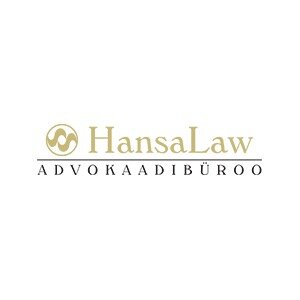Best White Collar Crime Lawyers in Estonia
Share your needs with us, get contacted by law firms.
Free. Takes 2 min.
Or refine your search by selecting a city:
List of the best lawyers in Estonia
About White Collar Crime Law in Estonia
White collar crime in Estonia refers to non-violent, financially motivated crimes typically committed by professionals or public officials. These crimes often involve deceit, breach of trust, or manipulation for financial gain. As a member of the European Union, Estonia adheres to stringent standards in managing and prosecuting financial crimes, aligning closely with international regulations to ensure transparency and accountability. The Estonian legal system places a strong emphasis on combating these crimes to maintain the integrity of its economic environment.
Why You May Need a Lawyer
Individuals or businesses may require legal assistance in white collar crime for various reasons. Some common situations include:
- Facing allegations or charges related to fraud, embezzlement, bribery, or insider trading.
- Being subjected to an investigation by regulatory authorities or law enforcement agencies.
- Needing guidance on compliance with complex financial regulations and corporate governance.
- Seeking to understand the legal implications of financial transactions or business practices.
- Defending against claims of money laundering or tax evasion.
- Wanting to report a suspected white collar criminal act.
Local Laws Overview
Key aspects of Estonian laws relevant to white collar crime include:
- The Penal Code of Estonia, which outlines specific offenses such as fraud, corruption, and cybercrime.
- Anti-Money Laundering and Counter-Terrorism Financing regulations that task businesses with implementing due diligence and risk management procedures.
- The role of the Estonian Financial Supervision Authority (EFSA) in overseeing financial institutions and ensuring compliance.
- Provisions in the Commercial Code that govern corporate governance and the responsibilities of company executives.
- The influence of European Union directives and international conventions on domestic legislation.
Frequently Asked Questions
What is considered a white collar crime in Estonia?
White collar crime typically involves non-violent acts such as fraud, embezzlement, bribery, money laundering, and regulatory violations, usually committed by individuals or organizations in positions of power.
How does Estonia prosecute white collar crime?
Estonian authorities prosecute white collar crime through its judicial system, using specialized units within law enforcement and regulatory bodies to investigate and bring charges against offenders.
What penalties can be imposed for white collar crimes in Estonia?
Penalties vary according to the nature and severity of the crime, ranging from fines and restitution to prison sentences for severe offenses.
Can businesses be held liable for white collar crimes in Estonia?
Yes, both individuals and businesses can be held liable if found guilty of engaging in or facilitating white collar crimes.
Are there specific agencies responsible for investigating white collar crimes in Estonia?
Yes, entities like the Estonian Internal Security Service and the National Crime Bureau are primarily responsible for these investigations.
What role does the EU play in Estonian white collar crime law?
EU directives significantly influence Estonian legislation, particularly in areas related to financial crime prevention, ensuring alignment with broader European standards.
Can charges be contested or appealed?
Yes, individuals and businesses have the right to contest charges and appeal decisions in higher courts if they believe there is a miscarriage of justice.
How long do investigations typically last?
The duration of investigations can vary widely, depending on the case's complexity and the level of international cooperation required.
What should I do if I suspect white collar crime?
Contact local authorities, such as the police or a regulatory body, and seek legal advice to ensure proper procedures are followed.
How can I ensure compliance with Estonian law?
Engage with legal professionals to establish compliance frameworks and regularly audit business practices against Estonian regulations.
Additional Resources
For those seeking more information or assistance, the following resources can be valuable:
- The Estonian Financial Supervision Authority (EFSA)
- The Ministry of Justice of Estonia
- Local law firms specializing in white collar crime defense
- Transparency International Estonia for guidance on compliance and anti-corruption measures
- The Estonian Bar Association for legal representation suggestions
Next Steps
If you require legal assistance related to white collar crime in Estonia, consider the following steps:
- Contact a lawyer specializing in white collar crime to discuss your situation.
- Gather all relevant documentation and evidence related to your case.
- Consider consulting with multiple legal professionals to understand your options better.
- If facing charges, cooperate with authorities while ensuring your lawyer is present during any questioning.
- Stay informed about your rights and legal obligations throughout the process.
Lawzana helps you find the best lawyers and law firms in Estonia through a curated and pre-screened list of qualified legal professionals. Our platform offers rankings and detailed profiles of attorneys and law firms, allowing you to compare based on practice areas, including White Collar Crime, experience, and client feedback.
Each profile includes a description of the firm's areas of practice, client reviews, team members and partners, year of establishment, spoken languages, office locations, contact information, social media presence, and any published articles or resources. Most firms on our platform speak English and are experienced in both local and international legal matters.
Get a quote from top-rated law firms in Estonia — quickly, securely, and without unnecessary hassle.
Disclaimer:
The information provided on this page is for general informational purposes only and does not constitute legal advice. While we strive to ensure the accuracy and relevance of the content, legal information may change over time, and interpretations of the law can vary. You should always consult with a qualified legal professional for advice specific to your situation.
We disclaim all liability for actions taken or not taken based on the content of this page. If you believe any information is incorrect or outdated, please contact us, and we will review and update it where appropriate.
Browse white collar crime law firms by city in Estonia
Refine your search by selecting a city.














